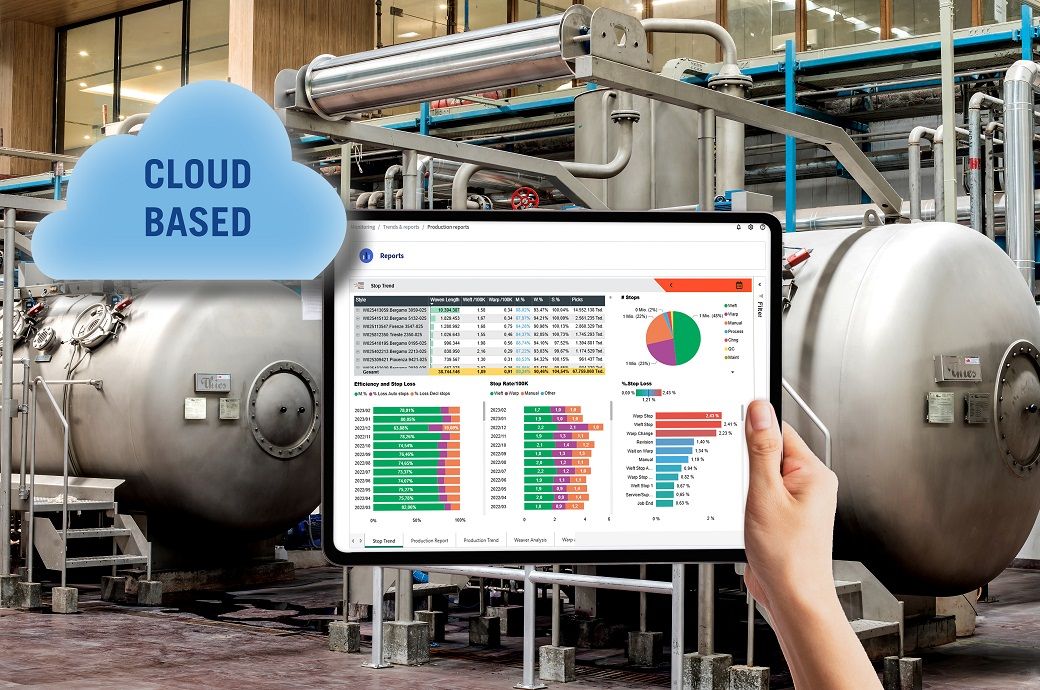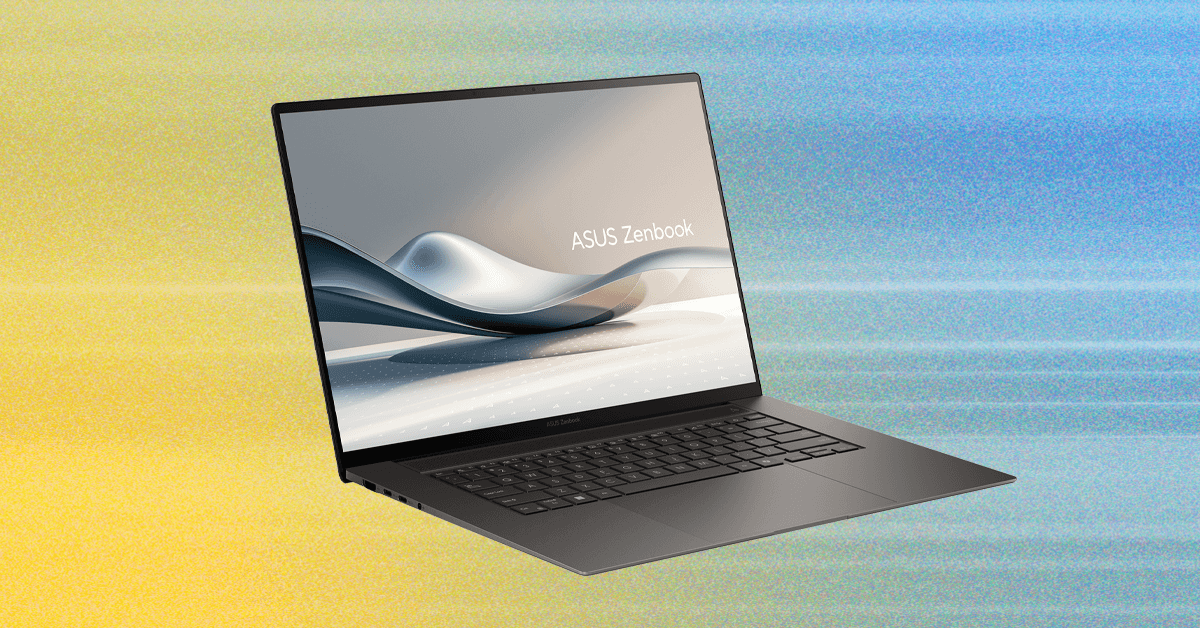Tech
Sedo Treepoint introduces new textile automation at ITMA ASIA 2025

Product highlight: the new Sedomat 6010 Controller
At their booth Sedo Treepoint will display the new Sedomat 6010 controller, a cost-effective yet powerful addition to the successful current Sedomat 6000/8000 Series. Compact, modular and designed for seamless integration, the new Series brings premium automation capabilities to a wider range of applications
At ITMA ASIA 2025 (Hall 8, Booth B410), Sedo Treepoint will showcase its latest textile automation and digitalisation solutions under the theme ‘Textile solutions together.’
Highlights include the new Sedomat 6010 Controller, MES expert systems, cloud-based Connect, and ColorMasterConnect, driving efficiency, sustainability, and quality in textile production.
Digital connectivity with MES and web-based solutions
Besides hardware, Sedo Treepoint will present its MES expert systems SedoMaster, SedoExpert and EnergyMaster, enabling real-time data exchange, centralized planning and connectivity across machines, ERP systems and chemical dosing units. Key features such as automatic production planning (APS) and process-wide optimizations help enhance efficiency and overall production performance.
With Connect, Sedo Treepoint introduces a new cloud-based solution for the entire textile industry. Designed to go beyond dyeing and finishing, Connect enables manufacturers across all textile sectors to benefit from centralized data access, real-time insights and scalable digital infrastructure without heavy upfront investment.
Alongside this, ColorMasterConnect will be presented as a web-based application. It provides intuitive, device-independent tools for color management, ensuring flexible, agile and accurate processes in production.
Innovation with purpose
“Automation and AI are powerful when combined with human expertise,” says Werner Volkaert, CEO of Sedo Treepoint. That’s why Sedo Treepoints solutions are designed to combine intelligent automation with deep industry expertise, delivering real value where it matters most. Helping manufacturers this way using resources efficiently, safely and consistently, is the main impact for ensuring higher quality, shorter lead times and long-term competitiveness.
Discover the future of textile automation
Visit Sedo Treepoint and their partner Smart Indigo at Hall 8, Booth B410, to experience the Sedomat 6010 Controller and new solutions like Connect and ColorMasterConnect. Discover how these innovations help textile manufacturers optimize production, reduce lead times and achieve consistent, high-quality results.
Click here to know more about ITMA Asia + CITME, Singapore 2025.
Note: The headline, insights, and image of this press release may have been refined by the Fibre2Fashion staff; the rest of the content remains unchanged.
Fibre2Fashion News Desk (HU)
Tech
I’ve Been Waiting Months for This Gorgeous Laptop to Drop in Price. It Finally Happened

After a long time of resisting significant price drops, the Asus Zenbook S 16 has finally dropped down to $1,000, which is $500 off its retail price.
It’s normal for laptops to dip in price toward the end of their lifespan, close to when an update comes out. But the Asus Zenbook S 16 has held on. To be fair, it’s an extremely high-end Windows laptop, one of the prettiest to come out last year. It’s sleek, portable, and has a striking design. It even gets fantastic battery life, on par with a MacBook. Speaking of MacBooks, this Zenbook is the laptop I saw tech journalists traveling with more than anything else. Given how much tech they review, that’s quite an endorsement.
But the S 16 has always been hard for me to recommend when the cheapest model available was $1,500. I was always on the lookout for a more significant price cut, but it never dropped more than a couple hundred bucks. And even though it always came with 24 GB of RAM and a terabyte of storage, the price was a hard pill to swallow. Well, the day has finally come. It’s now down to $1,000 over at Best Buy as part of the store’s Presidents’ Day sale. That’s an incredible price for this much laptop.
The previously mentioned memory and storage still apply here, along with the 2880 x 1800 OLED display with a 120-Hz refresh rate. This laptop basically has every high-end feature you could imagine, but one of my favorite aspects is the ports. Despite the thin profile, the S 16 keeps all the legacy ports you might want, including HDMI, USB-A, and even a full-size SD card slot.
There is also a smaller, 14-inch model, but its discount is not as strong as the 16-inch model. It comes in at $1,300 right now, which is still a solid price for this configuration.
I should say that Asus has an update in the works for 2026 with the latest Intel chips, but it’s only coming to the 14-inch model. I won’t lie: Based on my testing, these CPUs will make a significant difference in performance—especially on the graphics front. But I have a feeling Asus will be selling this device for an even higher price for much longer, especially with the recent development around memory shortage.
While the Zenbook S 16 is certainly the best deal at Best Buy for its Presidents’ Day sale, I would also recommend the Asus Zephyrus G14, which is also $500 off. This configuration comes with a powerful RTX 5070 Ti graphics card and is one of our favorite gaming laptops.
Tech
‘Uncanny Valley’: ICE’s Secret Expansion Plans, Palantir Workers’ Ethical Concerns, and AI Assistants

Brian Barrett: They’ve got 80 billion or so to spend 75 billion of that I think they have to spend in the next four years. So yeah, they’re going to keep expanding. And when you think of how much of an impact 3000 agents officers had in Minneapolis alone, that’s like an eighth of the, they can repeat some version of that in a lot of different spots.
Leah Feiger: And I’ve been fielding, honestly, shout out to the many local reporters around the country who’ve been contacting me in the last day or so, just to ask questions about the locations that we named that are near them or in their states or cities. And the thing to me that keeps coming up is that in addition to new buildings, they’re getting put into preexisting government buildings, preexisting leases, or that that appears to be the plan. And then we’ve also found that a bunch of these ICE offices are being located near plans for giant immigration detention warehouses, and we’re looking at offices being set up, say 20 minutes, an hour and 20 minutes away for these. Yeah. So we’re looking at different, the triangulation of this around you have to have your lawyers, your agents, have a place to get their orders and put their computers and do in some ways very mundane things that are required of an operation like this one.
Brian Barrett: Well, Leah, that’s a good point. I think when people hear ICE offices or when I do just instinctively, I think of ICE as guys with guns and masks and all that, but that’s not exactly what we’re saying here. Do you mind talking through what these offices seem to be queued up to be used for and by whom? Because ICE is not just the masked guys with bad tattoos.
Leah Feiger: Yes, absolutely. So what we reported in this story as well was some of the specific parts of ICE that actually reached out to GSA and asked them to expedite the process of getting new leases, et cetera, included in that, for example, where representatives from Ola, Ola is ICE’s office of the principal legal advisor. So that’s the lawyers, those are the ICE lawyers that are working with the courts and arguing back or deportation orders saying yes, no, et cetera, signing the documents, putting everything in front of judges. This is a really important part of this entire operation that we’re not talking about a ton. There’s a lot of focus on the DOJ. There’s a lot of focus. There was an excellent article this week in Politico talking about all of these federal judges that are really, really upset that DHS and ICE are ignoring their requests for immigrants to not be detained anymore.
The missing level of that is the lawyers that are part of this that are representing ICE to the US government here, and that’s ola. So they’ve reached out to GSA extensively as we report to get these leasing locations, specifically with the OLA legal request. I just want to get across how big this is. How massive is this ICE repeatedly outlined its expansion to cities around the us And this one piece of memorandum that we got from Ola stated that ICE will be expanding its legal operations into Birmingham, Alabama, Fort Lauderdale, Fort Myers, Jacksonville, and Tampa, Des Moines, Iowa, Boise, Idaho, Louisville, Kentucky, Baton Rouge, Louisiana, grand Rapids, Michigan, St. Louis, Missouri, rally, North Carolina, long Island, New York, Columbus, Ohio, Oklahoma City, Oklahoma, Pittsburgh, Pennsylvania, Charleston and Columbia, South Carolina, Nashville, Tennessee, Richmond, Virginia, Spokane, Washington and Cord Delaine, Idaho and Milwaukee, Wisconsin. We have other locations as well throughout the rest of the article, but those are the requests from OLA.
Tech
Waymo Asks the DC Public to Pressure Their City Officials

Waymo needs some help, according to an email message the self-driving developer sent to residents of Washington, DC, on Thursday.
For more than a year, Waymo has been pushing city officials to pass new regulations allowing its robotaxis to operate in the district. So far, self-driving cars can test in the city with humans behind the wheel, but cannot operate in driver-free mode. The Alphabet subsidiary—and its lobbyists—have asked local lawmakers, including Mayor Muriel Bower and members of the city council, to create new rules allowing the tech to go truly driverless on its public roads. The company has previously said it will begin offering driverless rides in DC this year.
But Waymo’s efforts to sway officials have stalled, so the company is now asking residents to apply some pressure. “We are nearly ready to provide public Waymo rides to everyone in DC,” says an email sent to those who have signed up for Waymo’s DC service. “However, despite significant support, District leadership has not yet provided the necessary approvals for us to launch.”
The email directs recipients to contact DC officials via a form letter that says, in part: “Over the past year, I have observed Waymo vehicles operating throughout our local areas, and I am thrilled about the potential advantages this service could provide, including enhanced accessibility and a decline in traffic-related incidents.” The communication urges DC residents to edit the letter to “use your own words,” because personalized messages “have a higher impact.” Only DC residents or those with DC addresses can participate, Waymo says.
In a written statement, Waymo spokesperson Ethan Teicher says, “We’ll be ready to serve Washingtonians this year, and urge the Mayor, the District Department of Transportation, and the City Council to act.” The company says that 1,500 people contacted district leaders through its email in the first 90 minutes after it was sent.
Generally, self-driving vehicle developers have only launched service in places where regulations clearly outline how the tech might hit the roads. Other US cities with Waymo service, including ones in California, Florida, and Texas, already had those rules in place before the company entered their markets. But as Waymo’s ambitions have grown larger, it has begun to target large blue-state cities where autonomous vehicle tech doesn’t yet have a “driver’s license.” Earlier this month, the company said it would begin testing in Boston, where city lawmakers pushed last year for an ordinance that would ban self-driving taxis from operating without a human behind the wheel. Waymo has said that it needs Massachusetts lawmakers to “legalize fully autonomous vehicles” before it can launch service in Boston.
Eventually, self-driving-vehicle developers hope that the US Congress will pass a law allowing the broader testing and operation of their tech across the US. On Tuesday, a House committee advanced a bill that would direct the federal government to create safety standards for autonomous vehicles, and prevent states from passing their own laws prohibiting the sale or use of the tech, or from requiring companies to submit information on crashes.
Waymo’s new DC pressure campaign echoes the ones launched by transportation disrupters, including ride-hailing giant Uber and bike- and scooter-share company Bird, nearly a decade ago. Like self-driving tech developers, those companies wanted to launch their new services in places where the rules didn’t align with their business ambitions. Ultimately, Uber and Lyft generally succeeded in getting laws passed in US statehouses allowing their services to operate on public roads—and preventing cities from creating their own laws.
Today, Waymo operates in six US metro areas—Atlanta, Austin, Los Angeles, Miami, Phoenix, and the San Francisco Bay Area—and plans to launch in more than 10 this year. Three other companies, including Nuro and Amazon-owned Zoox, have permits to test self-driving tech in Washington, DC.
-

 Entertainment7 days ago
Entertainment7 days agoHow a factory error in China created a viral “crying horse” Lunar New Year trend
-

 Business3 days ago
Business3 days agoAye Finance IPO Day 2: GMP Remains Zero; Apply Or Not? Check Price, GMP, Financials, Recommendations
-

 Tech6 days ago
Tech6 days agoNew York Is the Latest State to Consider a Data Center Pause
-

 Tech7 days ago
Tech7 days agoPrivate LTE/5G networks reached 6,500 deployments in 2025 | Computer Weekly
-

 Tech7 days ago
Tech7 days agoNordProtect Makes ID Theft Protection a Little Easier—if You Trust That It Works
-

 Business7 days ago
Business7 days agoStock market today: Here are the top gainers and losers on NSE, BSE on February 6 – check list – The Times of India
-

 Fashion3 days ago
Fashion3 days agoComment: Tariffs, capacity and timing reshape sourcing decisions
-

 Business7 days ago
Business7 days agoMandelson’s lobbying firm cuts all ties with disgraced peer amid Epstein fallout




)
)









